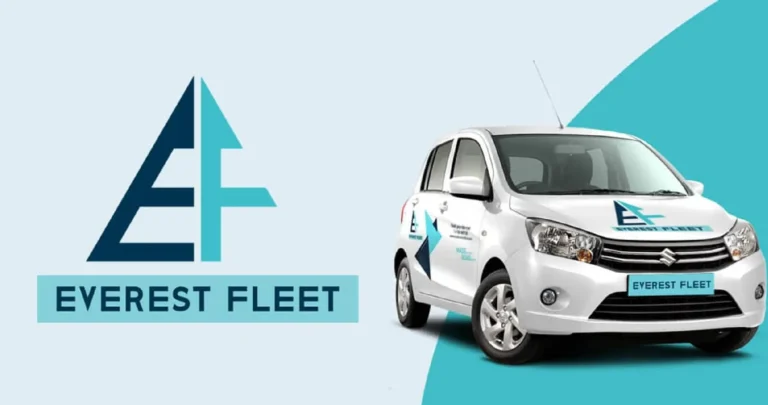
Revfin_Startup
The Current Landscape of Electric Vehicles in India
The electric vehicle (EV) market in India has witnessed significant developments in recent years, driven by a combination of rising environmental awareness, government incentives, and technological advancements. As of 2023, the total EV sales have surged, accounting for approximately 8% of the total vehicle registrations. This notable increase signifies a growing shift towards sustainable transportation solutions. Among the EVs, battery electric vehicles (BEVs) have gained the most traction, aided by improved battery technologies and decreasing costs.
Government initiatives have played a pivotal role in promoting the adoption of electric vehicles in India. The Faster Adoption and Manufacturing of (Hybrid &) Electric Vehicles (FAME) scheme, along with the National Policy on Electric Mobility, aims to provide financial incentives to consumers and manufacturers alike. These policies not only offer subsidies for electric vehicle purchases but also encourage the establishment of charging infrastructure, which has been a significant barrier to EV adoption. However, challenges remain, including the high upfront costs of electric vehicles compared to their internal combustion engine counterparts, and limited availability of charging stations in many urban and rural areas.
Furthermore, consumer awareness about the benefits of EVs is still evolving. There exists a knowledge gap regarding the long-term cost savings associated with electric vehicles, such as lower maintenance and fuel costs, as well as the positive environmental impact of reducing greenhouse gas emissions. As India battles severe air pollution, transitioning to electric vehicles aligns with the nation’s sustainability goals and commitment to reducing carbon footprints.
In light of these trends and initiatives, it becomes evident that while the landscape of electric vehicles in India is promising, it requires robust efforts in infrastructure development, consumer education, and financial support to overcome current challenges and accelerate the transition to sustainable mobility.
Understanding Revfin and Its Mission
Revfin is at the forefront of transforming the electric vehicle (EV) landscape in India by providing innovative financing solutions aimed at enhancing accessibility. The company is driven by a mission to accelerate the transition towards EV technology, making it possible for a wider segment of the population to adopt cleaner and more sustainable transportation options. Revfin’s vision is anchored in the belief that by democratizing access to financing, they can significantly contribute to the reduction of carbon emissions in urban areas, ultimately promoting a healthier environment.
At the core of Revfin’s operations are its strategic financing solutions, which include a variety of personal loan options and easy equated monthly installment (EMI) plans. This flexibility is designed to alleviate the financial burden often associated with purchasing electric vehicles, thus enabling more individuals to make the switch from traditional fossil fuel-powered vehicles to EVs. Revfin has also established partnerships with multiple EV manufacturers, further simplifying the purchasing process for potential customers and ensuring that they are provided with competitive financing rates.
Moreover, Revfin is particularly focused on fostering financial inclusivity. The company recognizes the barriers that low-income groups face in investing in EV technology, and it strives to bridge this gap. By offering tailored financing solutions, Revfin empowers these underserved communities, allowing them to partake in the EV revolution. This emphasis on inclusivity not only aligns with Revfin’s core values of accessibility and equity but also contributes to the larger goal of establishing a sustainable and environmentally conscious society. In essence, Revfin seeks to make electric vehicles a viable option for all, thereby accelerating India’s journey towards a greener future.
Financing Models That Make a Difference
Revfin is actively transforming the landscape of electric vehicle (EV) financing in India through innovative and customer-centric financing models. These models are designed to address the unique financial challenges customers face when considering an EV purchase. A cornerstone of Revfin’s approach is its range of customized loan products, which tailor financing options to individual needs, thereby facilitating a seamless buying journey for potential EV owners.
One key aspect of these customized loans involves flexible repayment plans that accommodate the varying financial situations of customers. By offering options for extended repayment terms or tailored installment schedules, Revfin ensures that more people can afford the transition to EVs without compromising their monthly budgets. This flexibility significantly enhances the accessibility of EVs to a broader audience, thereby supporting the overall growth of the EV market in India.
Moreover, Revfin collaborates closely with local dealers to create a more integrated purchasing experience. This collaboration allows customers to benefit from on-the-spot financing solutions, making it easier to complete an EV purchase. By working directly with dealers, Revfin eliminates many traditional barriers that buyers face, such as complex applications and lengthy approval processes.
To further streamline the application process, Revfin leverages advanced technology, including digital platforms that facilitate quick approvals. The integration of digital tools not only speeds up the financing process but also enhances the customer experience through easy access to information and services. Such advancements ensure that customers can focus on choosing the right vehicle rather than worrying about financial hurdles.
Overall, Revfin’s innovative financing models play a crucial role in accelerating India’s EV transition. By making EV financing more accessible and customer-friendly, Revfin is contributing to the burgeoning growth of the electric vehicle market in the country.
Impact and Future Outlook
Revfin’s innovative financing initiatives have begun to significantly alter the landscape of electric vehicle (EV) adoption in India. By making EVs more financially accessible, the company has contributed to a considerable uptick in EV sales across various segments. The reduction in upfront costs has been particularly influential, allowing a broader demographic to consider the switch to electric. Increased adoption is not only beneficial for consumers seeking economical alternatives to traditional vehicles but is also a crucial factor in achieving India’s ambitious sustainability goals.
Moreover, the positive environmental impact stemming from heightened EV adoption cannot be overstated. As more individuals and businesses opt for electric vehicles, the resultant decrease in greenhouse gas emissions plays a vital role in combating climate change and improving urban air quality. Several customers who have availed of Revfin’s services have stated how the ability to finance their vehicle has empowered them to make eco-friendly choices without financial strain. “Revfin helped me buy my first electric scooter, and I feel like I’m contributing to a cleaner environment,” shared a satisfied customer, reflecting the satisfaction and impact of Revfin’s offerings on end-users.
The outlook for the future appears promising as various industry experts discuss emerging trends in EV financing. The evolving regulatory framework, along with anticipated technological advancements, presents both challenges and opportunities for Revfin. Experts suggest that supportive government policies will further encourage EV adoption, while increased competition in the financing space may necessitate continuous innovation from Revfin to maintain its competitive edge. Furthermore, emerging technologies such as battery swapping and enhanced charging infrastructure are expected to create additional avenues for financing solutions. As the market for EVs expands, Revfin is well-positioned to play a pivotal role in shaping the future of India’s electric mobility landscape.






